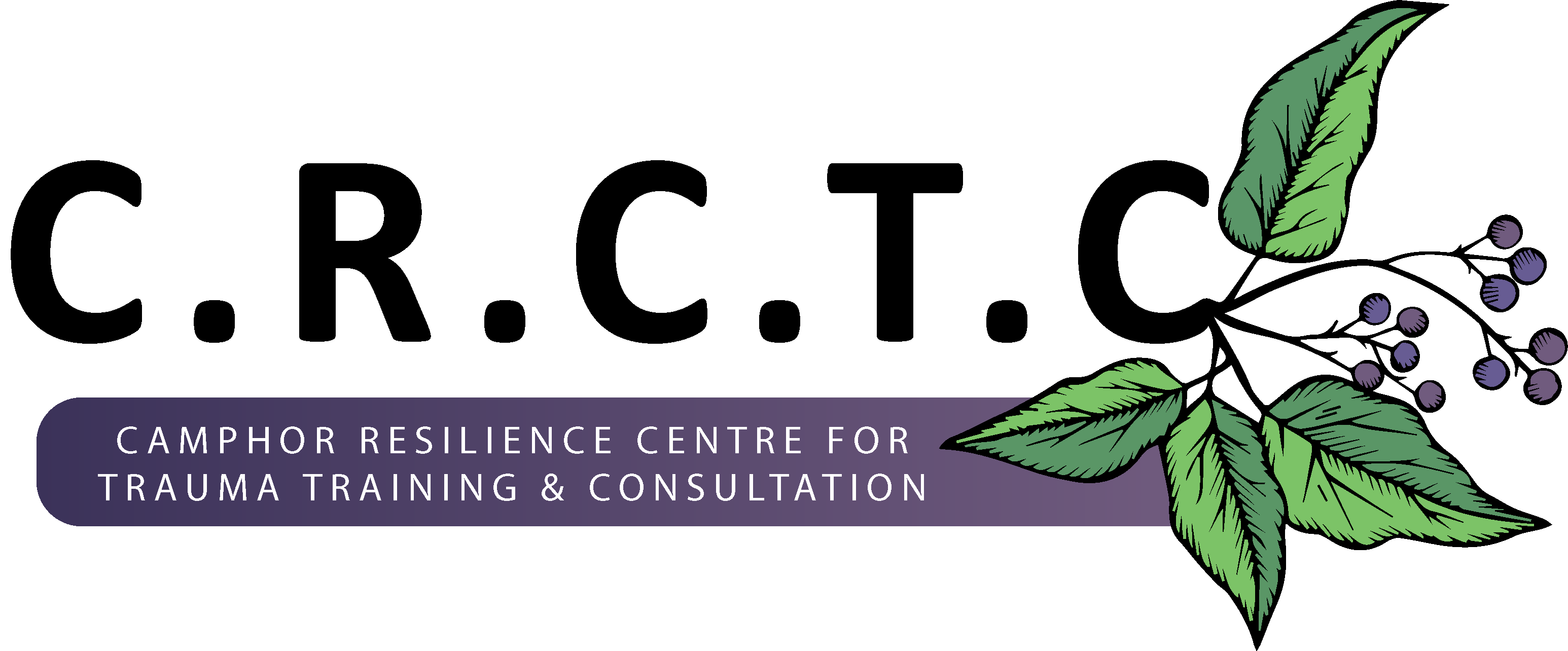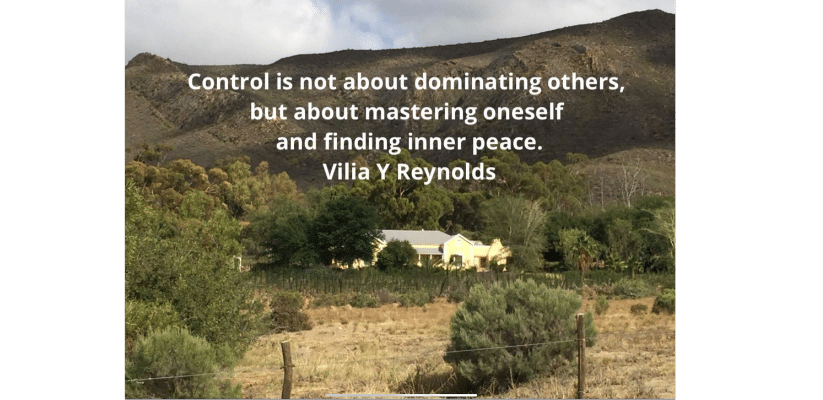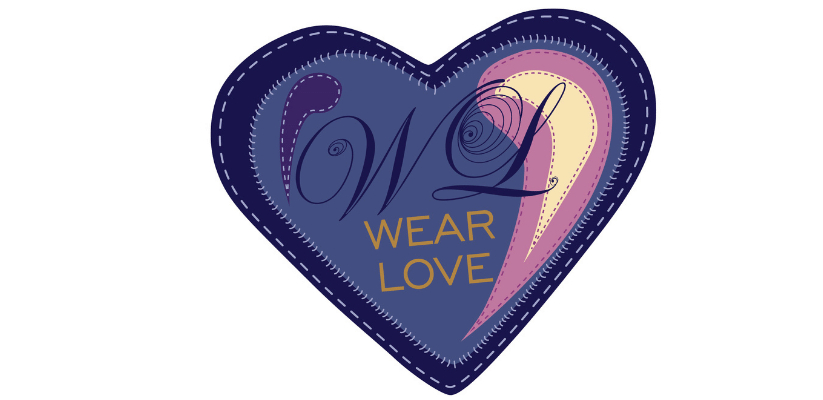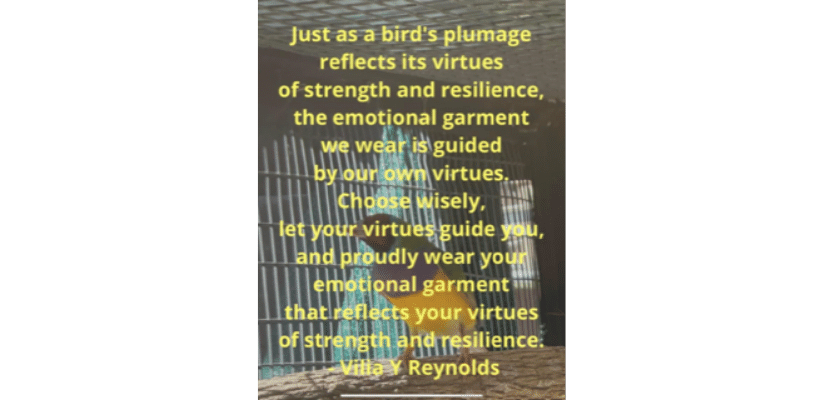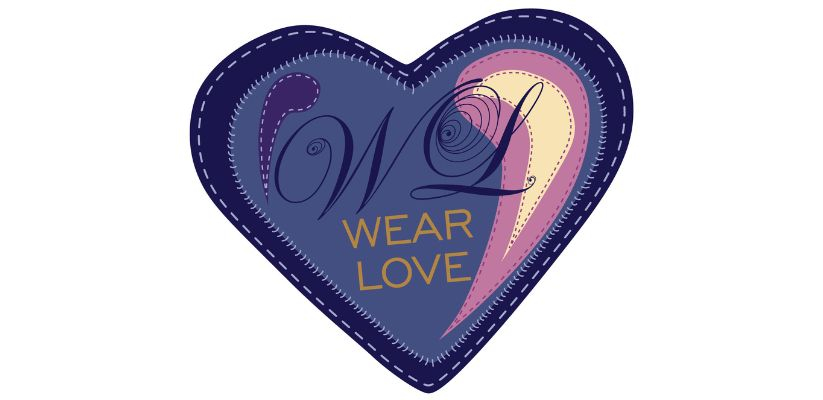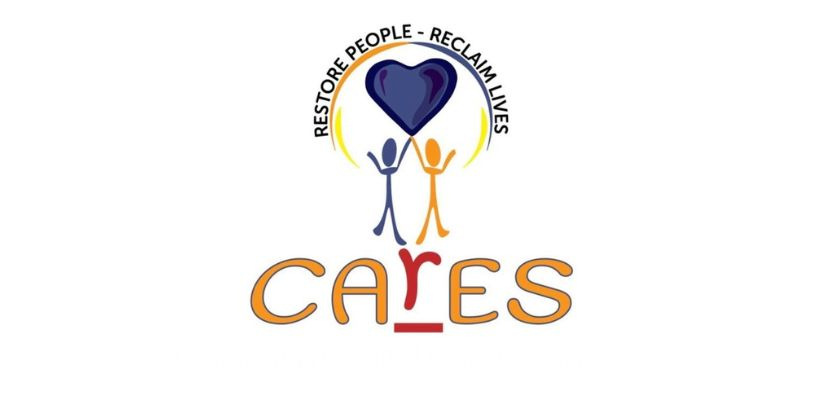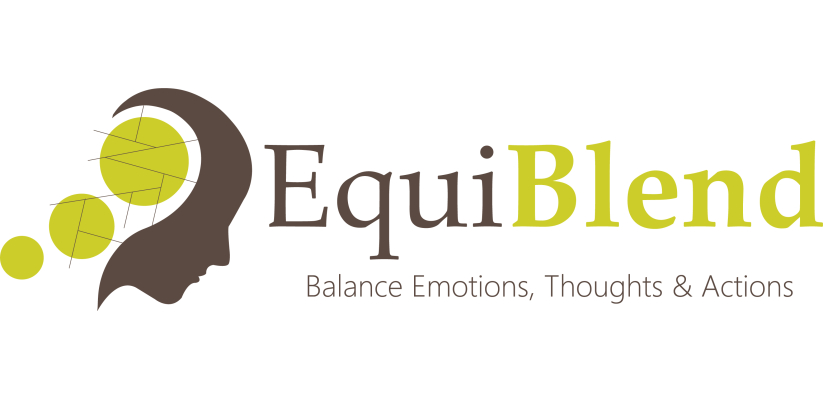Control: Mastering the Self for Inner Peace
"Control is not about dominating others but mastering oneself and finding inner peace."— Vilia Y Reynolds.
Control is a multifaceted concept shaped by our experiences, especially in the context of trauma. For individuals who have endured Adverse Childhood Experiences (ACE) or have Post-Traumatic Stress Disorder (PTSD), the notion of control can become particularly convoluted. This blog explores the dynamics between trauma, control, boundary-setting, and emotional logic, emphasising the importance of prioritising understanding over being understood.
The Impact of Trauma on Control Dynamics
Understanding how trauma significantly alters one's perception of control is empowering. Those who experience ACE or PTSD often grapple with feelings of powerlessness and insecurity. In these situations, control may serve as a compensatory mechanism—a misguided attempt to reclaim agency over one's life and environment. However, this quest for control frequently leads to unhealthy behaviours, such as manipulation or aggression, primarily directed towards others. These actions reveal more profound struggles related to vulnerabilities and unresolved trauma.
Unresolved trauma can distort emotional logic, constraining individuals to a state of constant hyper-arousal characterised by the fight-or-flight response. When individuals are chronically activated in this manner, they prioritise immediate self-protection over meaningful connection—often focusing on being understood rather than taking the time to understand others. This reactive tendency not only hampers personal relationships but also perpetuates cycles of conflict and misunderstanding.
The Importance of Boundaries
Boundaries play a critical role in managing one's emotional landscape, especially for those affected by trauma. Establishing healthy boundaries brings a sense of relief, helping individuals define their limits and protect their emotional well-being. Boundaries allow individuals to communicate their needs effectively, leading to healthier interactions and reduced reactivity.
Moreover, boundaries serve as a safeguard against unhealthy control behaviours. They create a space where both personal autonomy and mutual respect can thrive. By recognising and respecting these boundaries—both one's own and those of others—individuals can begin to disengage from the patterns of manipulation and aggression that often stem from unresolved trauma.
The Shift Toward Understanding
To mitigate the impact of unresolved trauma and enhance emotional logic, it is essential to shift the focus from merely being understood to genuinely understanding others. This shift is transformative, inspiring individuals to actively listen and empathise with others, fostering connection and promoting healing. This shift requires vulnerability, necessitating individuals to step outside their defensive postures and engage in meaningful dialogue.
By prioritising understanding, individuals move away from the fear-driven impulses associated with trauma responses. Instead, they cultivate a sense of compassion and empathy that allows for healthier relationships. This process can be challenging but ultimately rewarding; it fosters resilience and nurtures lasting connections built on trust and mutual respect.
In summary, the interplay between trauma, control, boundaries, and emotional logic highlights the complexities faced by individuals striving for inner peace. Recognising how unresolved trauma impacts the quest for power is crucial in understanding personal dynamics and fostering healthier relationships. By establishing healthy boundaries and prioritising genuine understanding, individuals can gradually master themselves, breaking free from cycles of fear and reactivity. This journey towards self-mastery is vital for personal growth and nurturing deeper, more fulfilling connections with others.
Let's explore the concept of control further in the context of trauma through a practical example involving a character named Alex.
Practical Example: Alex's Experience with Control and Trauma
Background:
Alex grew up in an unstable household where emotional neglect and occasional outbursts of anger from caregivers were common. These experiences, which constitute Adverse Childhood Experiences (ACE), have left lasting scars on Alex's emotional well-being. Now an adult, Alex struggles with feelings of anxiety, trust issues, and a deep-seated fear of vulnerability.
Dynamism of Control:
As Alex navigates life, the unresolved trauma manifests in a compulsion to exert control over relationships and situations. When faced with unpredictability—such as a colleague being late to a meeting or a friend cancelling plans—Alex reacts defensively, often becoming irritable or confrontational. This reaction stems from a belief that Alex can safeguard against perceived abandonment or instability by controlling others' actions.
For instance, when a friend cancels plans, instead of expressing disappointment or seeking understanding, Alex may lash out with accusations like, "You never care about our time together!" This behaviour attempts to assert control over the narrative and elicit a response of reassurance. However, it ultimately alienates the friend, perpetuating feelings of isolation and reinforcing a cycle of misunderstanding.
Emotional Logic and Insecurity:
In this scenario, Alex's emotional logic, how past trauma influences current emotional responses, is skewed by past trauma, leading to hyperarousal whenever a situation feels out of control. The fight-or-flight response kicks in, and the instinct is to react rather than respond thoughtfully. This reflects a survival mechanism from childhood where exhibiting strength and dominance was necessary to navigate a chaotic environment.
Boundary Setting and Understanding:
To break this cycle, Alex begins to engage in therapy, which emphasises the importance of understanding one's triggers and setting healthy boundaries. Through treatment, Alex learns to recognise when the need for control surfaces and practices pausing before reacting. Instead of responding angrily, Alex communicates more openly: "I feel disappointed that we can't meet today. Can we reschedule?"
Alex fosters healthier relationships by prioritising self-reflection and nurturing a deeper understanding of both personal emotions and those of others. This shift from striving for control to establishing mutual respect and empathy allows for connection and intimacy without the fear of loss.
Conclusion
This practical example illustrates how trauma can distort perceptions of control and emotional logic, leading individuals to reactive behaviours that strain relationships. Individuals like Alex can cultivate inner peace and healthier connections with others through awareness, boundary-setting, and a commitment to understanding rather than being understood.
The Importance of Trauma Counseling
Unburdening oneself from trauma is a deeply personal and often complex journey that requires more than just self-help techniques or surface-level strategies. While it may be tempting to seek immediate relief through self-help practices, these approaches can sometimes distract from the root issues rather than provide a genuine pathway to healing.
For individuals like Alex, who struggle with the lingering effects of past traumas, professional trauma counselling is essential. This structured form of therapy, guided by trained therapists, offers a safe space to explore painful memories and emotions. Unlike self-help methods, which might provide temporary comfort, trauma counselling seeks to address the underlying issues comprehensively, helping individuals understand their behaviours, reframe their thoughts, and develop healthier coping mechanisms.
Skipping the counselling process may lead to a false sense of resolution, as individuals may find themselves reverting to old patterns of thinking and maladaptive coping skills. Without addressing the core of their trauma, they risk entrenching negative behavioural traits, further complicating their emotional landscape.
In essence, while self-help tools can supplement the healing process, they cannot replace the transformative experience of professional trauma counselling. True healing requires confronting pain, understanding its impacts, and navigating life with resilience and authenticity. Only through dedicated therapeutic intervention can individuals hope to unburden themselves from the weight of trauma and foster lasting change in their lives.
